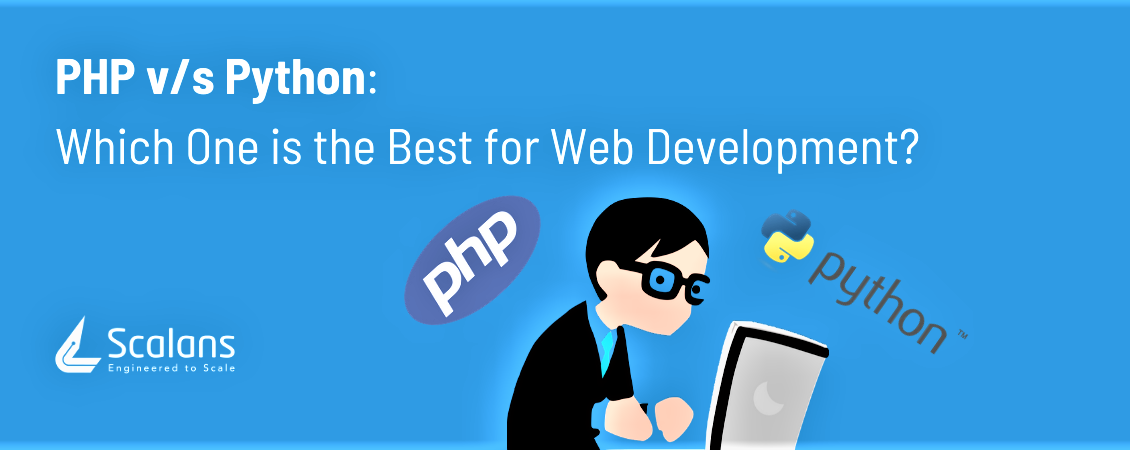
PHP vs. Python: Which One is the Best for Web Development?
There are many back-end programming languages suitable for custom web development and among them, PHP and Python hold great promise when it comes to building robust web solutions.
PHP, or Hypertext Preprocessor, is a scalable, general-purpose HTML-embedded scripting language that has a syntax similar to C language (with curly brackets, operators, etc.). It’s estimated that about 78.4% of all websites, whose server-side programming language is known, use PHP.
Python is a high-level, interpreted, dynamically-typed programming language that has an easy-to-read syntax due to significant use of whitespaces. It was the second most loved language in the latest Stack Overflow Developer Survey.
This article compares both the languages on five main parameters.
Let’s take a look.
- Usage
PHP is basically used for server-side web development; to develop cross-platform, database-enabled websites and web applications, Content Management Systems (CMS) and graphic user interfaces (GUIs).
Python is mainly used in cross-platform web projects dealing with Machine Learning, Artificial Intelligence, Data science, Blockchain, 3D animation, and also Business and System Administration applications. It is also used as a prototyping, testing and debugging tool.
- Library Support
PHP doesn’t have a strong library; it utilizes Packagist – a default Composer ( dependency manager for PHP) packages repository that is popular among developers.
Python has a comprehensive set of standard libraries for speedy development of a variety of applications with reduced coding. For example, Pandas – a data analysis and manipulation library, Tk – a GUI library, NumPy – a scientific computing library, TensorFlow and Scikit – both Machine Learning libraries, to name a few.
- Web Frameworks
PHP has some mature frameworks like Laravel, Symfony, CodeIgniter, Zend, Cake PHP, Yii, Phalcon, and many more.
Python, also, has great frameworks like Django, Flask, TurboGears, Web2py, Bottle, CherryPy, Pylons, to name a few.
Both PHP and Python frameworks help accelerate app development and reduce the workload of developers, eventually enhancing their productivity.
- Integration Capability
PHP smoothly integrates with leading databases like MySQL, Oracle, PostGreSQL, etc. and with web servers like Microsoft, Apache, etc. across major operating systems.
On the other hand, Python can easily integrate with C, C++, Java,.NET codes; thus, allowing different programmers to work on a single project, like a science web application.
- Performance
PHP 7.x versions fetch data very quickly from databases, and so have notably faster loading times. PHP frameworks like CodeIgniter, Yii and Zend exhibit superb performance.
Python also showcases optimal performance; however, it is considered to be 3 times slower than PHP. But, by combining with JIT compilers like Numba and Pypy, Python can greatly improve its performance.
Conclusion
Both PHP and Python have elaborate documentation and enjoy strong community support. They are free and open-source as well.
Our final verdict is that both are equally best and so, depending on your project needs and long-term business goals, you can decide upon which one to select for your next web development.



